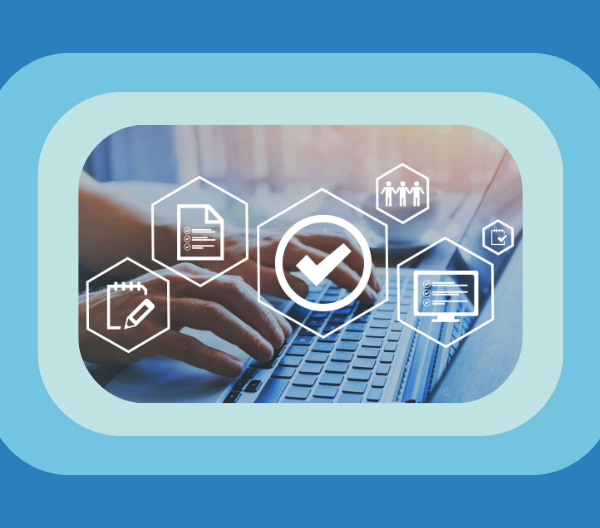An analysis of more than 80 million job postings from 2020-2021 showed that Durable Skills serve as a linchpin to workforce success, transcending educational attainment level, industry sector, or geography. However, uncertainty about what these skills really are, how they can be analyzed, and why they matter persists. To bridge this gap, we developed the Durable Skills Framework.
Continue reading to learn how educators, school leaders, and policymakers can leverage the Framework to benefit learners and society as a whole.
Durable Skills In Education
The World Economic Forum’s recent “Future of Jobs 2023” report shows that 9 out of the top 10 most in-demand skills today are Durable Skills, underscoring their pivotal role in today’s job market. These skills pave the way for academic and professional success and prepare learners to navigate the multifaceted challenges of accessing fulfilling and economically mobile career pathways in the modern world.
Recognizing educators, school leaders, and policymakers as key stakeholders, the Durable Skills Framework provides a standardized language to articulate essential skills that transcend specific professions or industries. By embracing this shared lexicon, stakeholders can enhance communication on skill expectations and implement strategies to empower individuals for success in a rapidly evolving job market. Having a common understanding of these skills enables educators to design curricula that foster them, empowers school leaders to align their institutions with broader workforce demands, and guides policymakers in ensuring that students have the opportunity to develop skills that prepare them for postsecondary excellence.
For Educators & School Leaders:
The Durable Skills Framework serves as a transformative tool for education systems. Whether fostering communication, critical thinking, or adaptability, this Framework can be used to explicitly embed these skills into learning experiences, creating future-ready graduates. It serves as a catalyst for innovation in teaching practices, student-centered classrooms, and broadens opportunities for learners to access economic mobility.
Ways to Use the Framework:
Curriculum Realignment: The Framework presents educators with an opportunity to integrate Durable Skills development into existing curricula. With a detailed understanding of each skill’s performance levels, educators can tailor lessons and assessments to meet the specific needs of their students.
Professional Development: The Framework serves as a cornerstone for designing targeted professional growth initiatives. Educators and school leaders can use it as a guide to identify their strengths and areas for improvement, ultimately enhancing their own skill sets and fostering a culture that prioritizes the cultivation of Durable Skills.
Enhanced Learning Experiences: The Framework empowers students with a tool to analyze a diverse, highly valued skill set and can be used to reshape learning environments to equip students for success beyond the classroom. For example, honing problem-solving skills through collaborative group projects provides students with applicable experiences that will benefit them in almost any career they pursue.
For Policymakers:
Policymakers play a crucial role in shaping education and workforce legislation that caters to the needs of learners and employers. The Durable Skills Advantage Framework empowers these stakeholders to make informed decisions to nurture a responsive education system and a skilled workforce.
Ways to use the Framework:
Champion Adoption: Act as an advocate for the widespread adoption of the Framework within educational institutions and policymaking environments. Engage with stakeholders, educators, administrators, and community leaders to build consensus on the Framework’s role in advancing postsecondary readiness.
Support Policy Implementation: Collaborate with stakeholders to support the implementation of policies that integrate the Framework into workforce development programs and education systems. Work with educational institutions, governmental bodies, and nonprofits to align policy goals with curriculum development to support a seamless education-to-workforce pathway.
Craft Durable Skills Policies: Utilize the Framework as a foundation for creating policies that prioritize the development of Durable Skills, such as allowing for work-based learning experiences to count for class credits. Rely on the Framework when working closely with other policymakers to design legislative initiatives that address the gap between K12 education and employer expectations.
Raise the Bar: Establish standards for student learning, both inside and outside the classroom – know what mastery of skills should look like and targets for career readiness, whether that’s through coursework in school or learning objectives for experiential learning opportunities, like work-based learning or apprenticeships.
Join Us In Reshaping the Future of Education
The Durable Skills Framework provides a roadmap for educators and policymakers to support the opportunities for students to have improved outcomes. For educators, it serves as a resource for building an institution that commits to student success. Policymakers can leverage the Framework to bridge the gap between education and meaningful employment, in turn leading to a more inclusive local and global economy that thrives long-term.
Stay tuned for our next article on how workforce agencies business professionals can use the Framework.




